While children most likely celebrate at school with their peers, it’s also fun to celebrate…
The preschool years are a time of rapid growth, and music can play a powerful role in supporting toddler development. Whether it’s singing, dancing, or playing simple instruments, musical activities offer a wide range of benefits that go far beyond fun.
To help you understand why music is so important to child development, the early education team from Primary Beginnings, our 5-star Raleigh preschool, is sharing the incredible benefits of music for preschoolers and little ones.
Table of Contents
What Are the Benefits of Music for Preschoolers?
During the early years of life, children’s brains are developing rapidly, making this a crucial window for learning and growth. Music is more than just a pleasant background sound or kids songs on the radio during car rides—music actually activates important developmental areas that shape how young children think, move, and communicate.
How Music Builds Early Brain Connections
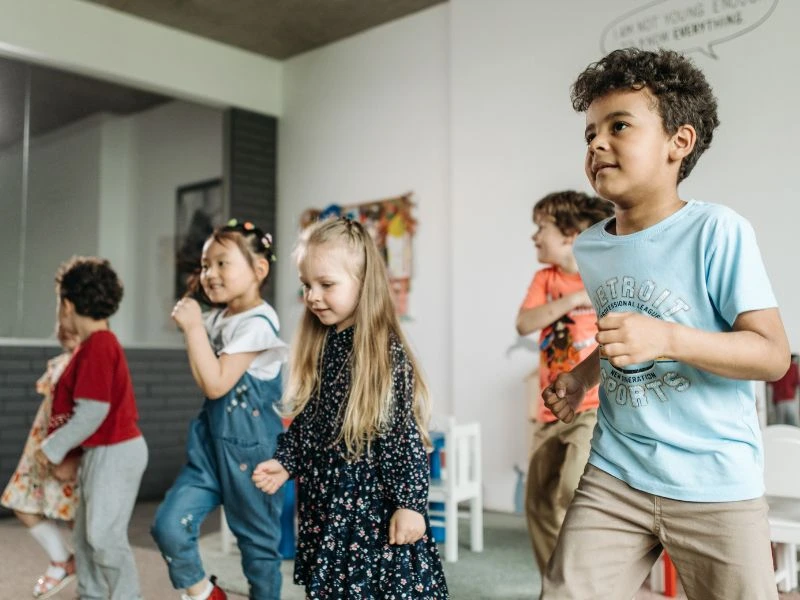
In the first years of life, a child’s brain forms millions of neural connections, and music plays a powerful role in shaping them. Singing, clapping, and moving to a beat activate multiple parts of the brain at once—boosting memory, attention, and language development.
Because music engages auditory, motor, and emotional systems simultaneously, it helps build strong brain pathways that support learning now and in the future.
How Musical Activities Strengthen Memory
Music is a powerful tool for helping young children remember information. The rhythm and repetition in songs create patterns that make it easier for the brain to store and recall what it learns—whether it’s the alphabet, numbers, or daily routines.
By pairing words with melody and movement, musical activities reinforce memory through multiple senses. This multisensory approach helps children retain new concepts longer and recall them more easily.

How Confidence Grows Through Music Participation

Music gives children a safe, joyful way to express themselves and take risks. Whether singing in a group, learning a simple instrument, or performing for others, each success builds self-esteem and encourages a sense of accomplishment.
As children gain confidence in musical activities, they’re more likely to participate in class, try new things, and interact with peers. These early wins support social development and create a strong foundation for future learning.
How Music Sparks Creativity and Imagination
Music invites children to explore sounds, rhythms, and movement in their own unique way. Whether they’re making up songs, dancing freely, or experimenting with instruments, musical play encourages self-expression and original thinking.
These creative moments help children develop imagination, problem-solving skills, and the ability to see the world from different perspectives—all essential parts of early childhood development.
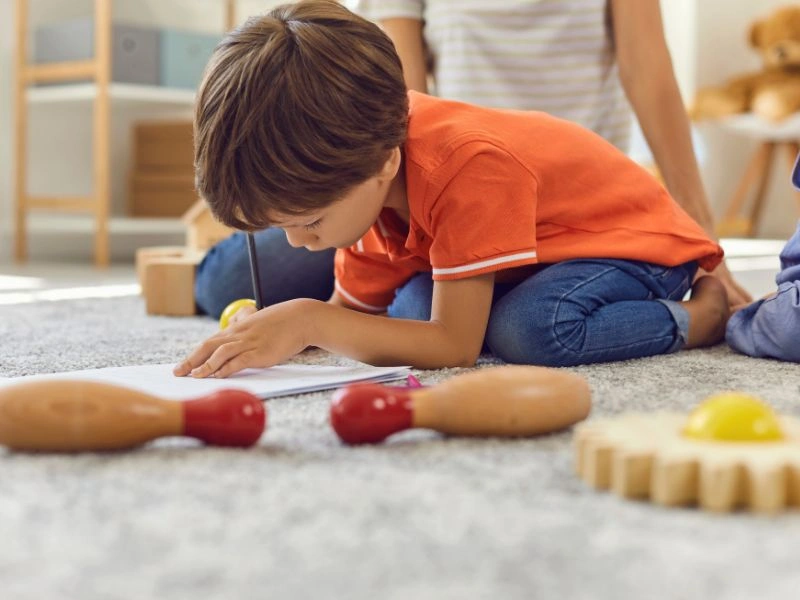
How Group Music Activities Improve Social Skills
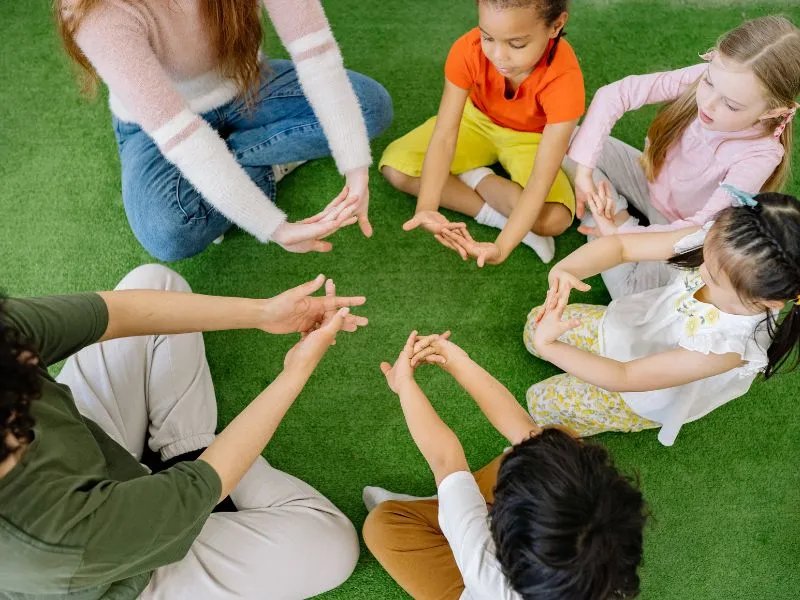
Participating in group music activities teaches children how to take turns, listen to others, and work as a team. Singing, dancing, or playing instruments together builds a sense of connection and encourages cooperation.
These shared experiences help children practice empathy, develop patience, and strengthen communication—all key social skills that support positive relationships in and out of the classroom.
Creating Opportunities for Children to Learn Music Skills
Preschoolers don’t need formal music lessons to build strong musical skills. Everyday experiences—at home with parents, in the classroom teachers, or in the community with peers—can all contribute to their musical growth.
Here are several simple, fun ways to encourage music activities for preschoolers:
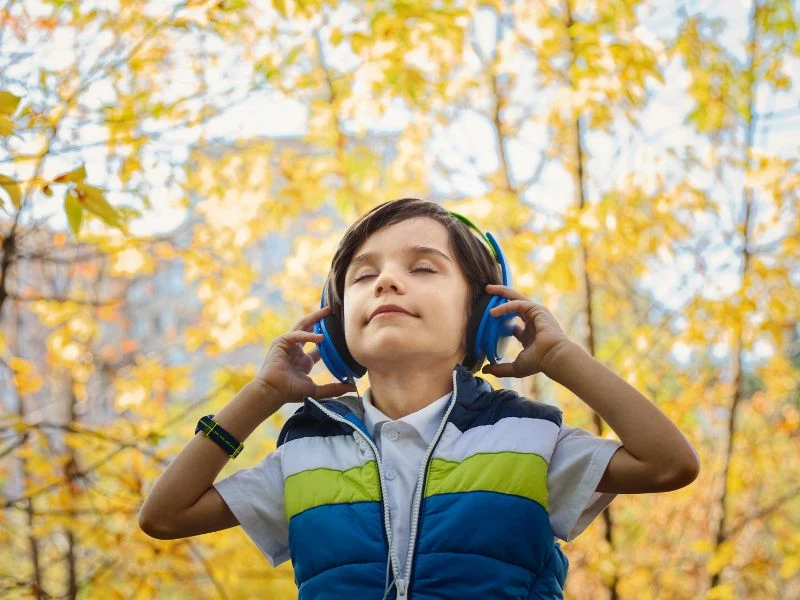
- Sing Throughout the Day: Use age-appropriate songs to make daily routines more engaging. Singing during transitions like cleanup time, brushing teeth, or getting ready for bed helps reinforce language and structure.
- Provide Simple Instruments: Instruments like maracas, hand drums, or toy keyboards let children experiment with rhythm and sound. These tools encourage fine motor development and early music exploration.
- Incorporate Movement and Dance: Play kids songs that invite clapping, stomping, swaying, or dancing freely. Moving to music supports gross motor skills, coordination, and rhythm awareness.
- Explore a Variety of Music: Play music from different cultures, time periods, and genres to broaden your child’s musical exposure. This helps develop listening skills and encourages appreciation for diversity.
- Make Up Songs Together: Create songs about your child’s name, favorite toys, or daily routines. Making up lyrics boosts creativity and encourages self-expression.
- Join Group Music Activities: Look for music circle time at the library, toddler sing-alongs, or music-focused preschool classes or extracurricular activities. These group settings promote social interaction and collaborative learning.
- Use Music to Teach Concepts: Songs can help children learn numbers, letters, colors, or body parts in a fun and memorable way. Educational music boosts retention and turns learning into play.
- Create a Musical Corner at Home: Designate a space with instruments, scarves for dancing, and a speaker for playing music. Having a dedicated space invites frequent musical play and exploration.
- Watch or Read About Music: Share books about music or watch short videos of musicians playing instruments to inspire curiosity. Seeing music performed encourages interest in how it works.
- Encourage Repetition and Practice: Repeating favorite songs helps children gain confidence and deepen their understanding of rhythm, melody, and lyrics. Familiarity reinforces these skills over time.
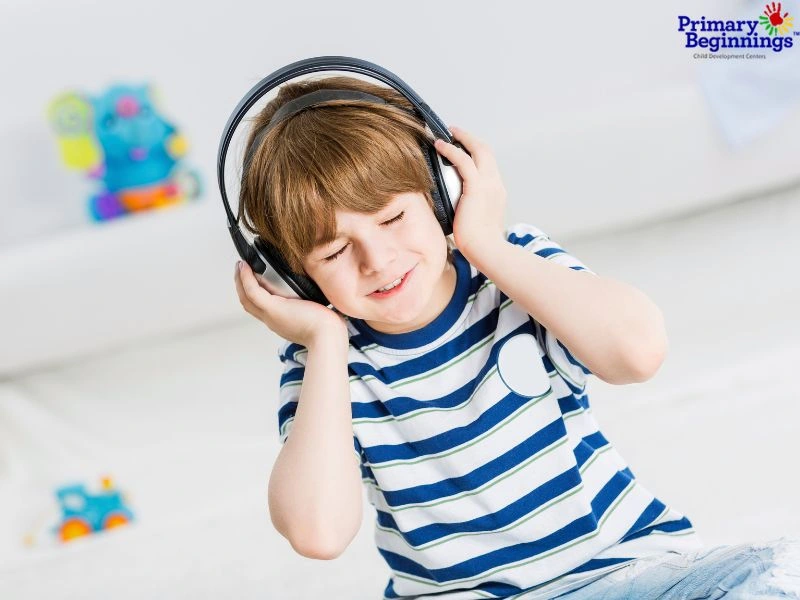
Enjoy Music Classes and More at Our 5-Star Preschool in Raleigh
At Primary Beginnings, we believe music is a key part of early childhood development. Since we understand the many benefits of music for preschoolers and young children, we incorporate it into our daily curriculum to help children grow cognitively, socially, and creatively. Our 5-star rated preschool offers a nurturing environment where children can explore music through singing, movement, and hands-on play.
Call our North Hills Drive location at 919-785-0303, our Falls of Neuse location at (919) 615-0752, or our Spring Forest location at 919-790-6888. Or, fill out our convenient contact form below to set up a tour of one of our campuses in Raleigh.
